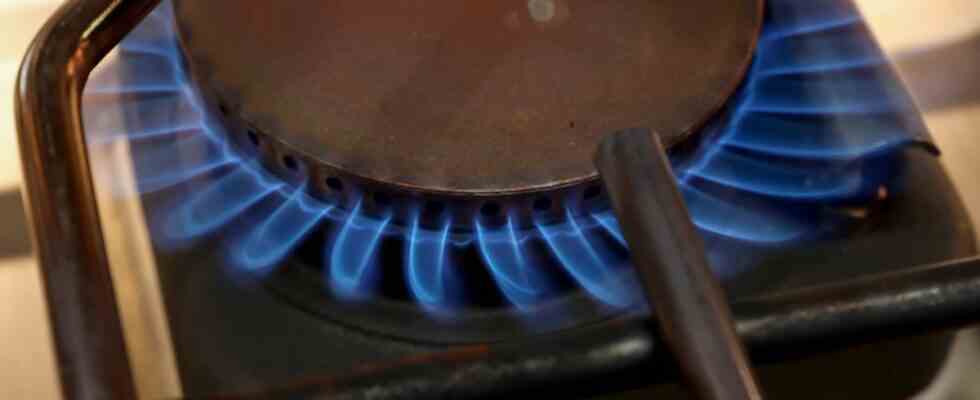Strict looks will rest on the experts, the ceiling of the Ludwig-Erhard Hall will ensure that. This Saturday morning, in the largest room of the Federal Ministry of Economics, the expert commission that is supposed to keep the gas price in Germany within limits will meet there. Half of recent world history looks down from the painted vault: Otto von Bismarck and Angela Merkel, Günter Grass and Steffi Graf, Hitler and Stalin. And of course the strict Ludwig Erhard himself, the father of the work “Prosperity for All”. And that’s what prosperity is all about.
The commission made up of business, science and trade unions has two days to take away the fear of gas bills from millions of households and thousands of companies, which they simply can no longer pay. A “price brake” should be forthcoming, and as quickly and fairly as possible. It is intended to relieve households, but at the same time provide incentives to save energy. A tricky task lies ahead of the experts, says Michael Vassiliadis, head of the chemical and energy union IG BCE – and one of the chairmen of the commission.
Many gas customers have already received hefty price increases, sometimes with a multiple of the discounts. “If that doesn’t happen quickly now, it will be a real problem for many,” Vassiliadis says. “Not to mention the social upheaval.” It is already clear: a quick answer cannot possibly be completely fair at the same time. There will be households that will benefit more than others. There is no time for fine tuning, at least before this winter.
Discounts on advance payments
There are many indications of two relief steps. Gas customers could initially receive a fixed subsidy via the gas bill. Like a new customer bonus, it could be charged directly by the supplier. That would lessen the first load. The question is what happens in the second step. Stadtwerke had advocated a flat-rate reduction in the price per kilowatt hour by three or four cents. The catch: Customers with cheap gas tariffs would be better off than ever – for others, those with exorbitant price hikes, the rebate would just be a drop in the bucket. This proposal, it is said, is off the table.
A variant that starts with the advance payments is more likely. For the deductions that all gas customers have to pay, the suppliers assume future consumption. It is usually based on the consumption of previous years. For this amount of gas – or part of it – a maximum price set by the state could apply in the future.
A household for which a consumption of 15,000 kilowatt hours was assumed could, for example, get 80 percent at a reduced price – that would then be 12,000 kilowatt hours. After a price increase, they would no longer have to pay 18 or 20 cents, but only 13 or 14 cents. There is still a need for discussion about which cents and percentages would apply. The price must not fall too much either, some in the commission warn. Otherwise there would be no incentive to save.
There are other problems: municipal utilities are worried about the liquid funds to buy gas at higher prices – which their customers only pay for when they are in arrears. There are also companies that need gas directly for production. Many of them are threatened in their existence. In all debates about price brakes, one should not forget them, warns trade unionist Vassiliadis. “Otherwise it’s all about the substance.”
The commission is to meet by Sunday evening, and an interim report is to be available on Monday, which already contains proposals that are as detailed as possible for the relief of consumers and smaller companies. In view of the very different problem areas, it is still unclear whether the experts will already put a concept on the table for the support of large energy-intensive corporations or whether the federal government will ultimately have to decide for itself depending on the individual case.
Billions in aid for gas importers
Either way: In order to speed things up, the cabinet wants to decide on the framework for the financing of gas and electricity price brakes as well as possible company aid as early as Monday. On Tuesday, the coalition factions are then to bring a corresponding draft law into the Bundestag, which if possible will clear all parliamentary hurdles within three weeks. The aid will amount to up to 200 billion euros, most of which is to be paid for through loans, and to a lesser extent by skimming off “chance profits” from the energy industry.
As can be seen from the documents that have become known so far, the federal government alone could support gas importers with up to 50 billion euros. They often hardly know how to pay the high market prices. That would leave 150 billion euros for gas and electricity price brakes and to support other companies. The repayment of the loans from the so-called Economic Stabilization Fund should be completed in early 2057 – exactly 100 years after “Prosperity for All” was published.

